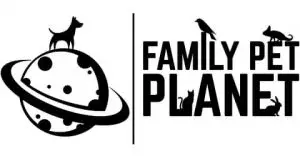Affiliate Disclosure: This post may contain affiliate links. If you make a purchase after clicking on these links I will be compensated at no extra cost to you. However, I never recommend anything I don’t love or wouldn’t use myself!
Yorkshire Terriers, or Yorkies (for short), are adorable small dogs with a feisty and brave disposition. Unfortunately, Yorkies are also known to have a delicate digestive system and often suffer from various gut-related problems, including constipation.
Before trying to treat a constipated Yorkie, it is important to establish whether or not they are indeed constipated.
Symptoms of constipation in a Yorkie include:
- Straining during bowel movements
- Dry or hard stools
- Blood or mucous on their feces
- No bowel movements in 3 days or more
- Yelping or crying during bowel movements
- Stomach pains
- Bloating
- Decreased appetite
It should be noted that some symptoms of constipation can actually be the result of other health issues. For example, it may look as though your dog is straining to defecate but in actual fact, they are having difficulty urinating due to a urinary infection or another issue.
For this reason, it is important to seek a proper diagnosis from a vet if the symptoms are persistent.
6 Ways to Help a Constipated Yorkie
Apart from short-term discomfort, prolonged constipation can actually cause more serious health issues. Constipation turns to obstipation which can cause lethargy, appetite loss, and sometimes vomiting. Your dog may also develop megacolon.
It is best if you can prevent constipation from occurring in the first place but you should also know how to help your Yorkie if they do become constipated.
The following tips will help to both prevent and cure constipation, so without further ado, here are 6 ways to help a constipated Yorkie…
1. Change Their Food
More often than not, constipation results from a poor diet. It makes sense that what goes into your dog directly affects what comes out (or doesn’t as the case may be).
Inexpensive dog food is often difficult for a Yorkie’s digestive system to process and digest thoroughly. Changing to a higher quality of dog food can help your Yorkie digest and pass their food more efficiently.
2. Keep Them Properly Hydrated
Everyone knows that dogs, like most other living things, need access to freshwater. Nevertheless, dehydration may be contributing to your dog’s constipation.
An adult dog should consume approximately 1 ounce (30 ml) of water per pound (0.45 kg) of body weight per day.
However, the warmer the weather and the more energy your Yorkie burns, the more water they will require. Therefore, it’s a good idea to take water with you when going for long walks, particularly in warmer weather.
3. Keep to a Feeding Schedule
This one might be a little less obvious but it’s not just what you feed your dog that can negatively affect their digestion. When you feed them can also have an impact.
Adult Yorkies should eat 2 or 3 times a day and at scheduled, regular intervals.
A rigid feeding schedule that allows adequate time to digest between feeding times is beneficial. This will help your dog’s microbiome stay healthy and allow it to do its job properly.
4. Make Sure They Get Enough Exercise
Again, not the most obvious suggestion for a constipated Yorkie, but an important one nevertheless. Getting those little hips moving can also help get things moving inside too.
Not getting enough exercise can slow all of your Yorkie’s body processes down, including digestion, which can cause constipation.
Getting plenty of exercise really helps when it comes to preventing or even curing constipation, not to mention a whole host of other benefits.
5. Add Fiber to Their Diet
The same as in our own diet, a little fiber can go a long way to improving the overall health of your dog’s gut.
There are several ways to increase fiber in your dog’s diet such as giving them oat bran or pure pumpkin. Add a teaspoon of oat bran or a teaspoon of pure pumpkin to each meal.
Alternatively, you can use powdered fiber supplements or purchase ready-made dog foods high in fiber such as this one on Amazon.
6. Give Them Some Wet/Canned Food
In general, it is best to stick to dry kibble where possible as it is better for your dog’s teeth and gums. This is particularly true for smaller breeds like Yorkies who can often get dental problems due to their smaller jaw size.
However, if your Yorkie is constipated, you can try giving them a bit of canned dog food. The higher moisture levels in canned food may help to get things moving again.

Okay, a bit of a random side-note here. I want to let you know about an opportunity to save 25% on all of your veterinary medical bills, even if your pet has a pre-existing condition! Just by signing up with Pet Assure, you’ll immediately be entitled to a 25% discount with participating vet practices. It’s like a friendlier, more hassle-free alternative to pet insurance that can even be used on top of regular insurance too. Please, view their website via my affiliate link for more information and to see their pricing. I was pleasantly surprised at how much money they can save us, pet owners.
What Causes Constipation in Yorkies?
Your Yorkie can become constipated for a variety of reasons. Some may be environmental, and others may be within the dog’s body. Environmental causes are much easier to spot and fix. Health issues hidden within your dog’s body are much harder to diagnose.
Environmental factors that can cause constipation in Yorkies:
- A change in food
- Increased stress
- Lack of fiber
- Lack of exercise
- Dehydration
- Ingestion of a foreign body (leading to intestinal obstruction)
- Ingestion of bones (leading to intestinal obstruction)
If you have addressed environmental factors that could be causing your dog’s constipation, and there has been no progress, or it has become worse take your Yorkie to the veterinarian as soon as you can. There is most likely an internal issue such as one of the following to blame.
Medical issues that can cause constipation in Yorkies:
- Intestinal obstruction by polyps or tumors, an enlarged prostate, or intestinal intussusception (when one section of the intestine folds into another)
- Anal or rectal blockage by, abscesses, fistulas, prolapse, or tumors
- Conditions like hypothyroidism or parathyroid disorders that affect the endocrine system
- Certain parasites such as whipworms
- Neurological damage as a result of trauma, spinal cord diseases, or other problems that disrupt nerves that control the bowels
- Pain, such as that caused by hip dysplasia, back problems, or tail issues
- Megacolon or a distended large intestine (usually only occurs in dogs with chronic constipation)
- Various medications often cause constipation as a side effect
Visiting the Vet With a Constipated Yokie
For more severe cases of constipation, a vet trip will be necessary. Prepare to answer the following questions to help your vet provide the best possible care:
- What is the color and consistency of your dog’s stool?
- When was the last time your Yorkie had a normal bowel movement?
- Does your Yorkie strain or show any signs of pain when trying to go?
- Have there been any changes in your dog’s diet or routine?
- Could your Yorkie have eaten anything unusual or inedible?
- Has your Yorkie had any injuries in the past or more recently that could affect bowel movements?
- Is your Yorkie showing any other signs of distress or discomfort?
- Is your Yorkie currently on any medications?
After examining your dog, your vet will decide what the best plan of action is for your Yorkie moving forward. This could include one of the following treatments:
- They may prescribe a laxative to help your Yorkie overcome constipation. Do not give your dog laxatives that are not prescribed to them by a professional.
- They may perform an enema on your dog in order to clear out the bowels and allow for regular movements to begin again. Do not attempt this yourself unless instructed to do so.
- Your vet can check if there is anything blocking your Yorkie from passing stool. If there is a foreign object present in the digestive system, it may need to be surgically removed.
- They may prescribe a stool softener.
How to Provide a Proper Diet for Your Yorkie

Most of the causes of constipation, both environmental and medical, can be prevented with a proper diet. It is no secret that Yorkies tend to have digestive troubles, some may also suffer from allergies or have specific dietary needs. When finding the best diet for your Yorkie, you must consider the three following factors: age, energy level, and overall health needs.
Your dog’s age can dictate its diet. For instance, older Yorkies require more protein in their diet (unless they have issues with their kidneys), while younger Yorkies need plenty of proteins and fats. The energy level of your dog determines how many calories they need to stay healthy.
Lastly, your Yorkie’s overall health can affect the type of nutrition they need because some health issues can be exacerbated by certain foods. Additionally, if your dog is pregnant or feeding a litter of puppies, or even if they have been their nutritional needs will change. Female Yorkies that have been spayed will need far less food also.
Some of the best dog foods for Yorkies that are available on the market today are outlined in the following chart.
| Dog Food | Description |
| Wellness Complete Health Small Breed | -4 pound bag -turkey, oatmeal, and salmon -small kibble bits -made with premium and all-natural ingredients -perfect everyday nutrition |
| Hill’s Science Diet for Sensitive Stomach & Skin, Adult | -30 pound bag -chicken flavor recipe -promotes digestive health -nourishes skin -provides prebiotic fiber to support a balanced gut |
| Natural Balance Ultra Small Breed | -11 pound bag -chicken formula -provides Omega-3 and Omega-6 fatty acids for brain health -helps to maintain a healthy immune system -a grain-free formula with no gluten |
| Instinct Raw Boost Small Breed & Toy Breed | -10-pound bag -grain-free recipe with real beef -includes both small kibble bits and freeze-dried raw beef -includes probiotics and omega fats for gut and brain health |
| Stella and Chewy’s Lil’ Superblends | -8 oz bag -add to your dog food to enrich it with freeze-dried raw chicken and superfoods full of nutrients -supports healthy digestion, skin and coat, dental health, stamina, and vitality, and manages weight |
In order to choose which dog food is right for your Yorkie, you must make sure it contains the ingredients that your dog needs to stay at peak health, such as:
- High-quality proteins – These proteins help to continually build and maintain muscle tissues for proper growth and development.
- Healthy fats – Omega fats are essential for brain health and a smooth coat. Your Yorkie should get 12 to 18% fat in its diet at a minimum.
- Healthy carbs – Carbohydrates in the form of fruits, vegetables, and whole grains help to supply the energy that your dog needs to stay active. Particularly important for Yorkies as they are prone to hypoglycemia.
How Much and How Often to Feed a Yorkie
The next part of ensuring your Yorkie has a proper diet is knowing how often and how much to feed them. How often a Yorkie is fed is based on its age and size, and how much they are fed is based on their weight. The following chart outlines how often you should feed your Yorkie.
| Age | How Often to Feed | Details |
| 0-3 months < 2.5 lbs or 1.13 kg | Free-feed throughout the day | -leave fresh food out and available to the puppy all-day -make sure to empty old food and replace it with new food periodically |
| 3 months – 1 year > 2.5 lbs or 1.13 kg | 3 to 4 meals a day | -begin to schedule feedings -typical times are morning, lunchtime, early evening, and evening time -evening feedings should be at least 2 hours before bedtime -if you opt for 3 feedings, you can cut out the early evening feeding -you can give dry treats as snacks in between meals |
| > 1 year | 2 to 3 meals a day | -at this time, switch to 3 meals a day -if your Yorkie has large snacks, 2 meals a day is fine -switch from a puppy formula to an adult dog formula |
Once you’ve figured out how often you need to feed your dog, you have to figure out how much to feed them. Some tips to figuring out how much to feed your Yorkie at each meal include:
- Know the exact weight of your dog
- Always read the recommended serving size on your dog food container. Keep in mind that most serving sizes are daily, so you will have to divide the daily serving size by the number of feedings your dog gets each day.
- Don’t guess at the measurements of food. Use a dry measuring cup or a kitchen scale.
The usual suggested serving size for a Yorkie is small compared to other dogs. Puppies from 2 to 4 pounds only need one-third to one-half cup of food per day. Adult Yorkies around 3 to 4 pounds will generally eat about the same amount. Older Yorkies that weigh around 7 to 8 pounds can eat up to two-thirds of a cup of food a day. [Source]
Foods to Avoid for Your Yorkie
The last factor you should be aware of when considering your Yorkie’s diet is what you should avoid feeding to them. Typically, premium and more expensive dog food brands will be your best bet. However, even high-quality dog food brands can have ingredients that are detrimental to your dog’s health.
A recent study has shown a potential link between BEG grain-free pet foods and dilated cardiomyopathy (DCM), a dangerous heart disease.
“BEG stands for boutique brands with exotic meats (non-traditional proteins like kangaroo, alligator, and ostrich) along with being grain-free and with peas, legumes, and/or potatoes as one of the top 5 ingredients.”
yorkieinfocenter.com
Knowing these risks is important when deciding on the right diet for your four-legged friend. You should consult your veterinarian if you have any doubts about what your Yorkie should be eating.
It should also be noted that most Yorkies do not require a grain-free diet, please read my article on the subject for more information.
Some ingredients you should always steer clear of are:
- Chemical preservatives. They are known to cause allergic reactions, and some are even considered carcinogens.
- Artificial coloring or flavoring. They are known to cause allergic reactions, behavioral issues, and even cancer.
- Fillers. These can lead to nutritional deficiencies, intestinal distress, and the eating of feces.
- By-products. These are usually meats or tissues used to reach protein quotas that are not fit for consumption.
- Generic meats or oils. Legally, this is allowed to be from roadkill and diseased animals.
- Made in China. Thousands of pet deaths have been credited to dog foods with ingredients that have been sourced from China.
Understanding what to look for when your dog is constipated or otherwise feeling under the weather is one of the most important parts of owning a pet.

